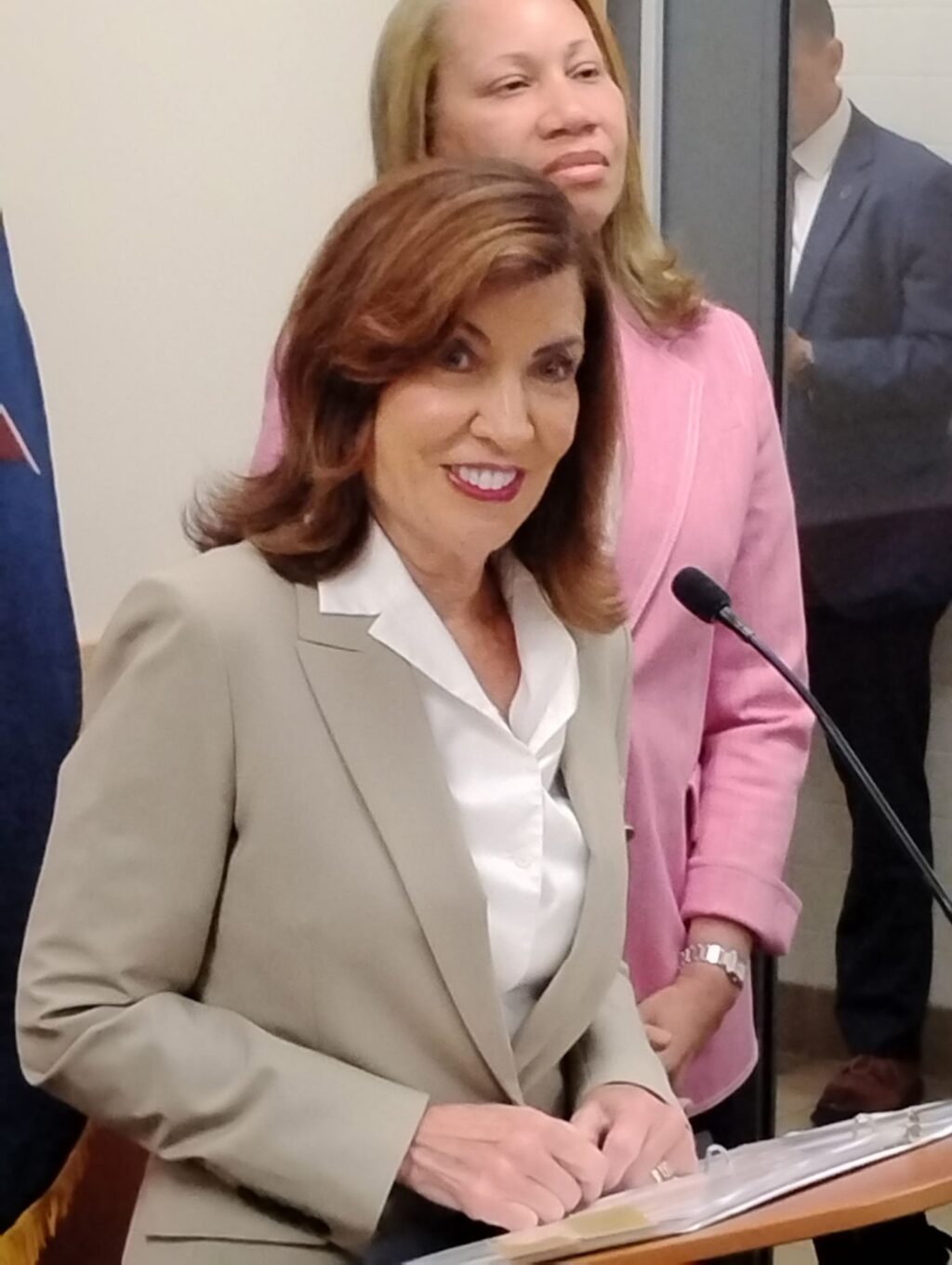
During a recent visit to Mohawk Valley Community College in Rome, New York, Governor Kathy Hochul addressed the significant utility rate increase approved by the New York State Public Service Commission (PSC). This announcement came as Hochul revealed that Oneida County would receive $32.36 million for infrastructure improvements through the state’s FAST NY program.
Details of the Rate Increase
On August 14, 2023, the PSC authorized a joint proposal that establishes new three-year electric and gas rate plans for National Grid. Customers can expect an average increase of approximately $22 per month for their electric and gas bills, with rates rising nearly 10% starting in September. By 2027, the average household in Upstate New York will face an additional cost of around $600 annually, translating to a monthly increase of about $50.
Initially, National Grid and other utility companies sought a nearly $1 billion hike in gas and electric rates through April 2027. Major utility providers in New York include Consolidated Edison, Central Hudson, NYSEG, and Orange and Rockland, with National Grid serving approximately 2.3 million customers in the region.
Hochul expressed her frustrations regarding the rate hike during her visit, stating, “We had been speaking with them since May. They wanted a 10 percent increase, and we said we wanted a zero percent increase. We ended up with a 3.2 percent increase.” The PSC justified the increase as necessary for maintaining National Grid’s aging infrastructure.
Political Reactions and Community Concerns
PSC Chair Rory M. Christian defended the decision, saying, “The adopted joint proposal meets the legal requirement that the company continue to provide safe and adequate service at just and reasonable rates.” He emphasized that the three-year plan prioritizes customer affordability while addressing essential state objectives.
Local officials have voiced their discontent with the PSC’s decision. Senator Joe Griffo, a Republican from Rome, criticized the rate increase, stating, “I am disappointed that the Public Service Commission voted today to approve a rate increase for National Grid gas and electric customers. This increase will further burden New Yorkers who are already struggling financially.” He also questioned Hochul’s criticism of the PSC, reminding constituents that she plays a pivotal role in appointing commission members.
Assemblywoman Marianne Buttenschon, a Democrat representing the 119th District, echoed these sentiments. She reported that her office had received numerous complaints from residents, business owners, and seniors already grappling with high utility bills. “This decision makes their burden even heavier,” she remarked. Buttenschon criticized the PSC for failing to prioritize affordability in their mission to ensure reliable energy access.
New York State law permits residents to file complaints regarding utility quality and pricing. A petition signed by at least 25 customers, or a mayor or village trustee, is required to initiate such complaints. Buttenschon urged New Yorkers to engage with the Draft State Energy Plan before the October 6 deadline, emphasizing the importance of public input.
In response to the rate increase, various assistance programs are available to help New Yorkers manage their utility costs. Those eligible for the Home Energy Assistance Program or other forms of assistance may automatically qualify for bill credits through the state’s Energy Affordability Program.
Residents can explore options such as National Grid’s bill assistance programs, community solar projects, and deferred payment arrangements. For specific inquiries or to file complaints, customers can contact the Department of Public Service or National Grid directly.
Griffo concluded, “New Yorkers need significant relief, real action, and policies that make life more affordable. They do not need hollow words from an executive trying to shift the blame from her problematic policies that have resulted in rising energy costs and made the state unaffordable.”







